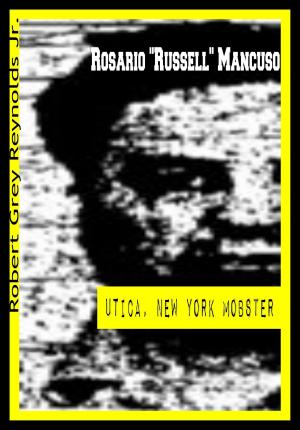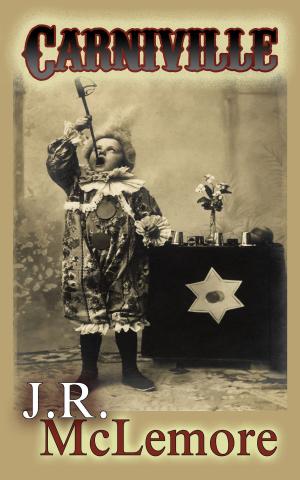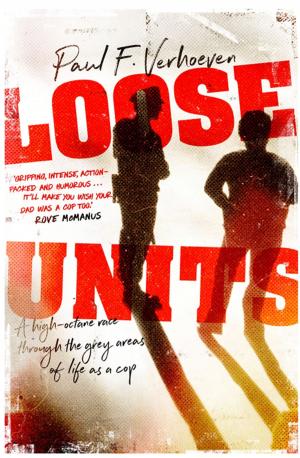| Author: | Fathy Fares | ISBN: | 9780994568045 |
| Publisher: | WORD SPELL PUBLISHING | Publication: | September 8, 2011 |
| Imprint: | WORD SPELL PUBLISHING | Language: | English |
| Author: | Fathy Fares |
| ISBN: | 9780994568045 |
| Publisher: | WORD SPELL PUBLISHING |
| Publication: | September 8, 2011 |
| Imprint: | WORD SPELL PUBLISHING |
| Language: | English |
Now Samiha has reached the age of fifteen and Nader, the firstborn son, forces her to leave school. How will she cope with this situation while her elder sister has completed her studies and accepts an arranged marriage? Resentment against Nader's controlling attitude creates constant tension in the family especially between him and Tarik. Tarik is part of a generation with nationalist feelings, utterly committed to their country's cause fighting against colonialism and corruption. It is the 1952 Revolution and the deposed King Farouk of Egypt is on his way into Exile. Tarik believes the Nationalist's struggle against corruption is rewarded. No one in the El-Masry family can foresee what happens to Dr Farida, which is to shatter their lives. After the Muslim Brotherhood Organisation is disbanded and Hasan goes into hiding, the El-Masry family realises that their lives will be affected by Hasan's actions. Why is Tarik put into a detention centre? After many disappointments, Tarik finally decides to leave the upheaval of his country. Where will he begin his new life? "This is a fascinating enjoyable and authentic story, based on real life experiences of many Egyptians. Reading this novel will take you down into the depths of the Egyptians heart and mind, where wisdom and madness are mixed together, laughing jokes surmounting sadness and misery, and all human conflicting feelings and attitudes. As an Australian of Egyptian origins and background myself, I found this novel to be most enjoyable as well as informative in the same time. And as a former Expert and Consultant for an international organization concerned with development of education and cultures of the world, I would recommend this novel as a good example of literary work that can help create mutual understanding among different peoples of the world. Such understanding is badly needed for our modern world." - Mohamed Ades, Author and translator of many books, and writer of tens of articles published in six magazines "The author of this novel, Fathy Fares, gives readers an unusual and somewhat intimate introduction to the everyday lives of Egyptians back in the 1950s. This novel gives readers a wonderful insight - we learn their customs, prayer habits and their views on many things as we spend our time following their daily lives." - John Morrow's 'Pick of the Week' About the Author Fathy Fares was born in Egypt, a son of a school director. After his high school education in Cairo, he studied engineering at a German university. He is married to a Hungarian / German woman. They have three children, one son and two daughters. Fathy migrated with his family to Australia. He studied further, adding to his engineering degrees higher qualifications in education. He was lecturing in engineering and wrote a few textbooks. Fathy was the chairman of a few committees such as staff development, equal opportunity, teaching staff selection panel and multicultural policy party. His motivation to write came from his keen sense of observation and interest in history and human behaviour. He wrote many papers in education as well as short stories. Fathy was a study writer of the curriculum for technological studies of the Victorian Curriculum and Assessment Board. He wrote four books of poetry in Arabic, which he recited on different ethnic broadcasting programs. Many of his poems and articles were published in magazines and newspapers of the Egyptian Society in Australia and on the Internet.
Now Samiha has reached the age of fifteen and Nader, the firstborn son, forces her to leave school. How will she cope with this situation while her elder sister has completed her studies and accepts an arranged marriage? Resentment against Nader's controlling attitude creates constant tension in the family especially between him and Tarik. Tarik is part of a generation with nationalist feelings, utterly committed to their country's cause fighting against colonialism and corruption. It is the 1952 Revolution and the deposed King Farouk of Egypt is on his way into Exile. Tarik believes the Nationalist's struggle against corruption is rewarded. No one in the El-Masry family can foresee what happens to Dr Farida, which is to shatter their lives. After the Muslim Brotherhood Organisation is disbanded and Hasan goes into hiding, the El-Masry family realises that their lives will be affected by Hasan's actions. Why is Tarik put into a detention centre? After many disappointments, Tarik finally decides to leave the upheaval of his country. Where will he begin his new life? "This is a fascinating enjoyable and authentic story, based on real life experiences of many Egyptians. Reading this novel will take you down into the depths of the Egyptians heart and mind, where wisdom and madness are mixed together, laughing jokes surmounting sadness and misery, and all human conflicting feelings and attitudes. As an Australian of Egyptian origins and background myself, I found this novel to be most enjoyable as well as informative in the same time. And as a former Expert and Consultant for an international organization concerned with development of education and cultures of the world, I would recommend this novel as a good example of literary work that can help create mutual understanding among different peoples of the world. Such understanding is badly needed for our modern world." - Mohamed Ades, Author and translator of many books, and writer of tens of articles published in six magazines "The author of this novel, Fathy Fares, gives readers an unusual and somewhat intimate introduction to the everyday lives of Egyptians back in the 1950s. This novel gives readers a wonderful insight - we learn their customs, prayer habits and their views on many things as we spend our time following their daily lives." - John Morrow's 'Pick of the Week' About the Author Fathy Fares was born in Egypt, a son of a school director. After his high school education in Cairo, he studied engineering at a German university. He is married to a Hungarian / German woman. They have three children, one son and two daughters. Fathy migrated with his family to Australia. He studied further, adding to his engineering degrees higher qualifications in education. He was lecturing in engineering and wrote a few textbooks. Fathy was the chairman of a few committees such as staff development, equal opportunity, teaching staff selection panel and multicultural policy party. His motivation to write came from his keen sense of observation and interest in history and human behaviour. He wrote many papers in education as well as short stories. Fathy was a study writer of the curriculum for technological studies of the Victorian Curriculum and Assessment Board. He wrote four books of poetry in Arabic, which he recited on different ethnic broadcasting programs. Many of his poems and articles were published in magazines and newspapers of the Egyptian Society in Australia and on the Internet.















